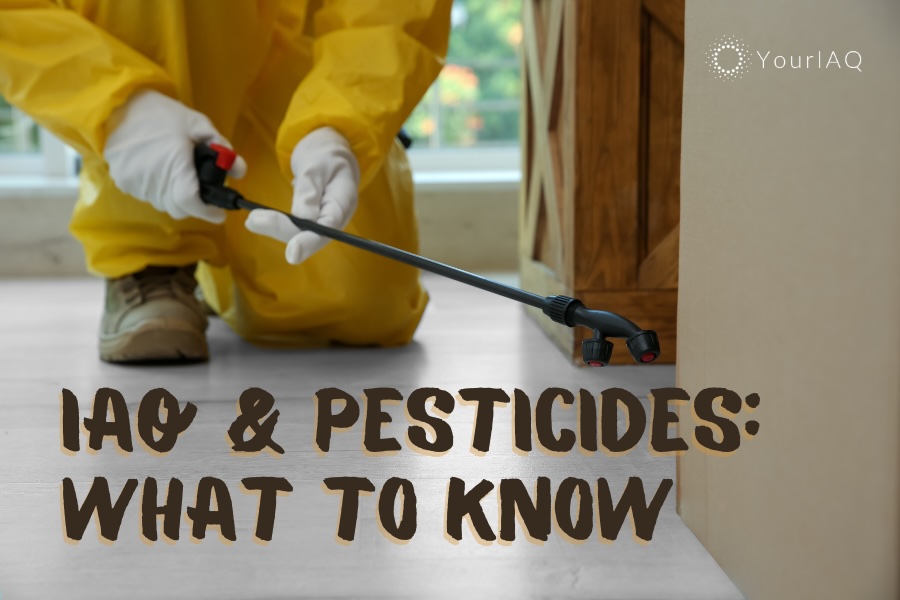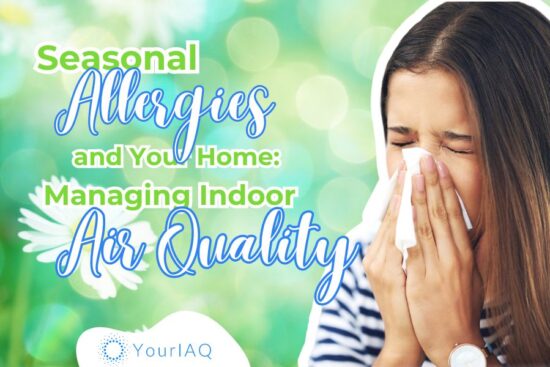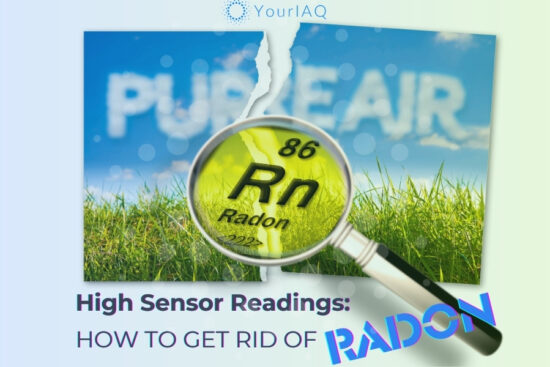
Welcome to our in-depth look at the relationship between household pesticides and indoor air quality. This topic is crucial for anyone aiming to maintain a healthy, safe home environment.
In this article, we’ll explore common household pesticides and their potential health impacts. You’ll also gain insights into safer practices and organic alternatives. This knowledge is essential for protecting your family and pets from the risks associated with indoor pesticides.
Join us as we guide you through this vital subject. Our goal is to help you ensure your home remains a haven of health and safety.
Common Household Pesticides: What You Need to Know
Many households rely on pesticides to combat unwanted critters. However, these chemicals, when used indoors, can significantly contribute to indoor air pollution. Pesticides contain volatile organic compounds (VOCs) that easily evaporate into the air, leading to a decline in indoor air quality. VOCs can trigger various health issues, especially in vulnerable individuals.
Health Impacts of Indoor Pesticides
Indoor exposure to pesticides has been linked to respiratory problems, headaches, dizziness, and skin irritations. Pesticide air pollution can exacerbate existing conditions like asthma and allergies. Long-term exposure may even increase the risk of certain cancers. It’s crucial to be aware of these health risks and take proactive measures to minimize our exposure.
Children and Pesticide Exposure: Protecting the Little Ones
Children are particularly susceptible to the adverse effects of indoor pesticides. Their developing bodies and immune systems make them more vulnerable. Studies by reputable organizations like the American Academy of Pediatrics highlight the connection between pesticide exposure and childhood illnesses. To safeguard our little ones, opting for safer alternatives and implementing stringent pest control measures is imperative.
See also: Is Indoor Air Quality a Problem in Schools?
Pets and Pesticides: Ensuring Furry Friends Stay Safe
Our beloved pets are equally at risk from indoor pesticides. Cats and dogs often come into direct contact with treated surfaces, leading to potential poisoning. The Environmental Protection Agency (EPA) provides valuable insights on pet safety concerning pesticides. Choosing pet-friendly pest control options and regularly monitoring our furry companions for signs of distress is key to their well-being.

Indoor Air Quality Monitoring: Your First Line of Defense
Investing in indoor air quality monitors can be a game-changer. These devices detect harmful pollutants, including pesticide residues, providing real-time data to help you make informed decisions. YourIAQ recommends checking out the EPA’s guidelines on indoor air quality monitoring for reliable information on choosing the right monitor for your home.
Exploring Organic Alternatives: A Greener Approach to Pest Control
Fortunately, there are safer alternatives to conventional pesticides. Organic pest control methods utilize natural substances like neem oil, diatomaceous earth, and essential oils to repel pests effectively. Not only do these methods protect indoor air quality, but they also promote a healthier environment for everyone at home. Professional associations like the National Pest Management Association offer valuable resources on organic pest control strategies.
IAQ and Pesticides: Frequently Asked Questions
Are there natural ways to repel pests without harming indoor air quality?
Yes, organic methods like using essential oils, diatomaceous earth, and natural predators can effectively repel pests while maintaining good indoor air quality.
How can I monitor indoor air quality at home?
Invest in an indoor air quality monitor. These devices provide real-time data on pollutant levels, including pesticide residues, helping you make informed decisions about your indoor environment.
What are the signs of pesticide poisoning in pets?
Symptoms include vomiting, drooling, difficulty breathing, seizures, and loss of appetite. If you notice any of these signs, seek immediate veterinary care.
Can indoor pesticides cause long-term health problems?
Yes, prolonged exposure to indoor pesticides has been linked to an increased risk of certain cancers, respiratory issues, and neurological disorders.
Are there specific indoor plants that can naturally repel pests?
Yes, plants like lavender, basil, and mint can repel pests naturally, enhancing indoor air quality and providing a green solution to pest problems.
Conclusion: Embracing Healthier Indoor Living
By understanding the impact of pesticides on indoor air quality and adopting safe practices, we can create a healthier environment for ourselves, our families, and our pets. Remember, our indoor air quality profoundly influences our overall well-being, making informed choices essential for a vibrant and healthy home.
References
| Name | Description/Expertise | Link |
| Environmental Working Group (EWG) | Non-profit organization providing valuable information about toxins in everyday products, including pesticides. | https://www.ewg.org/ |
| American Academy of Pediatrics | Professional association of pediatricians, offering insights on children’s health and safety, including pesticide exposure. | https://www.aap.org/ |
| National Pest Management Association | Trade association for the pest management industry, providing resources on safe pest control practices. | https://www.pestworld.org/ |
| United States Environmental Protection Agency (EPA) | Federal agency focused on environmental protection, including guidelines and studies related to indoor air quality and pesticides. | https://www.epa.gov/ |
| Beyond Pesticides | Non-profit organization advocating for pesticide alternatives and promoting safe pest management strategies. | https://www.beyondpesticides.org/ |






